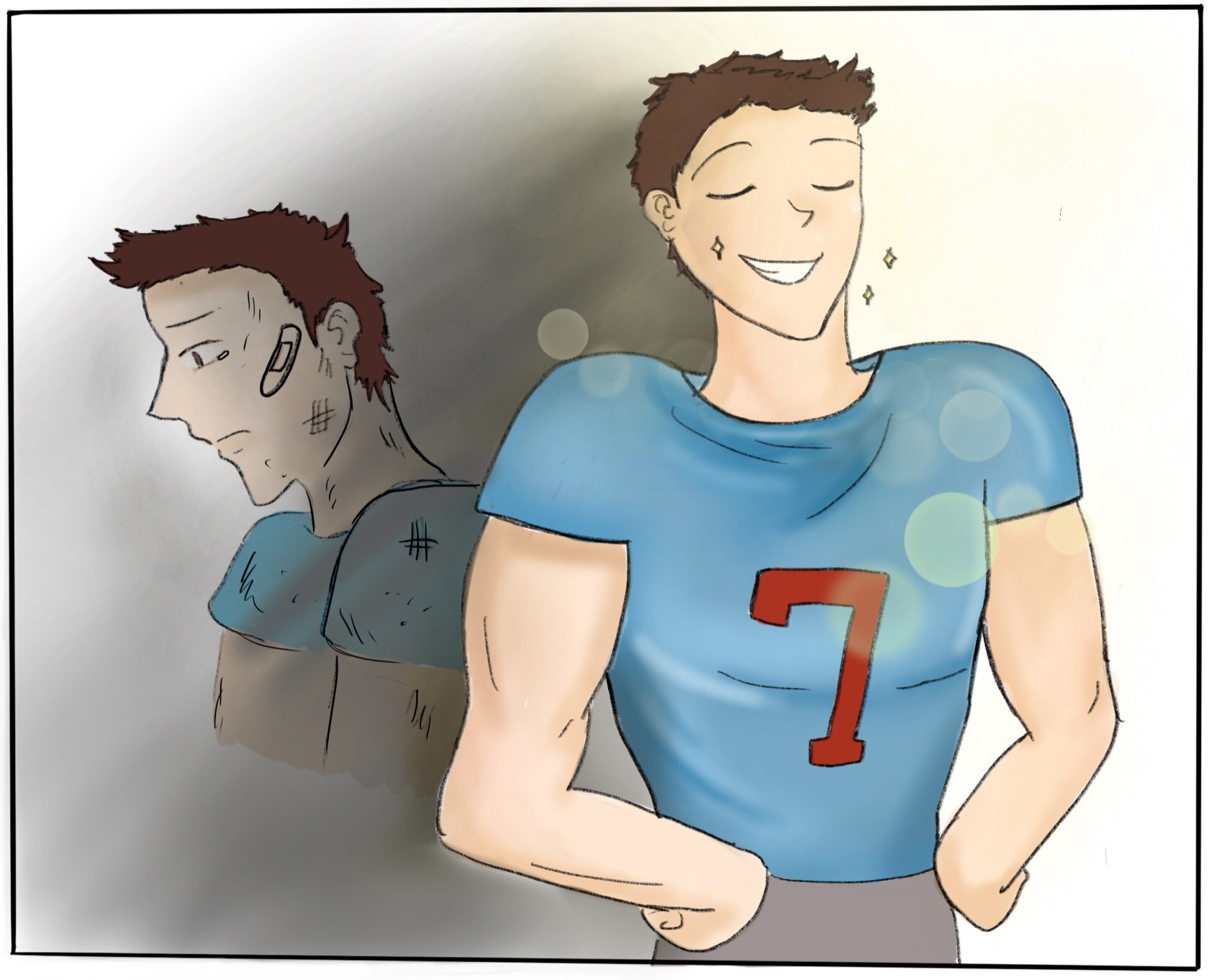
Written by Julia Renner and Amanda Hao.

Over 91.6 million people watched the Super Bowl this year, outperforming every other televised sport. What was once a simple football game has evolved into a cultural event that monopolizes a Sunday each February. However, under the glamour that surrounds the sport, at its core, football strongly perpetuates toxic masculinity, the culmination of negative qualities and behaviors that are stereotypically expected of men. These ideas are outdated and gendered, but the sport of football embodies them.
From 2009 to 2011, New Orleans Saints staff paid players bounties for injuring players on opposing teams. Although some staff members were suspended, the punishments were overall extremely light, accentuated by the main perpetrator, Gregg Williams, still being a high ranking coach in the NFL until he was fired in late 2020.
Some coaches and players believe that football is the most “manly” sport. Not only do men have to be tough to play, but if they don’t play, they’re seen as weak. They put their health on the line for this standard of masculinity. Only a few years ago, 19-year-old Jordan McNair on the University of Maryland football team lost his life because he was too scared to show weakness. He could barely stand, but he pushed himself to keep practicing because of the toxic culture and pressure. This resulted in him collapsing and being sent to the hospital an hour later with a 106 degree Fahrenheit fever. Two weeks later, he died.
“Jordan knew that if he stopped, [his team] would challenge his manhood, he would be targeted,” said one of his teammates to The Huffington Post. “He had to go until he couldn’t.”
According to Vox, over 2.5 million American children (mostly boys ages 5 to 13) play tackle football every year; from the beginning of their lives, young men have it drilled into their minds that if they show pain they are weak, if they lose they are weak and if they ever back down from a challenge they are weak. This mindset continues to spread and creates a disgusting and toxic culture of masculinity, putting these boys in potential danger. Like in McNair’s case, for fear of having their manliness questioned, many football players do not acknowledge serious injuries, which can lead to permanent damage or even death.
The encouragement of violence on the field also ends up translating to these men’s lives off the field. According to the National Institute of Health, when a local NFL team loses a game they were expected to win, the rate of domestic violence in the area which supported the team on average increased by 10% — based on analysis from police reports of violent incidents on Sundays during the NFL season.
While football games can be fun to watch or attend, the NFL must work towards resolving the harms of toxic masculinity. The idea that a boy can only become a man by playing football needs to be erased, as does the normalization of intense violence. Not only do its teachings largely endanger players, but the ideals of manliness and toughness the sport perpetuates raise young men with toxic behavioral habits.



